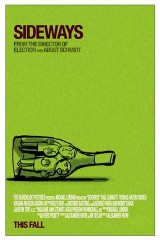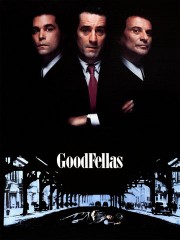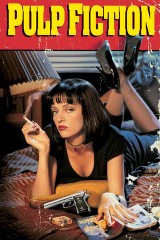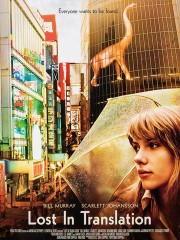
(Photo by Emma McIntyre/Getty Images)
The artist formally known, and credited, as “MILF guy,” has come a long way since his American Pie days. The last decade has seen John Cho shed his goofy teen comedy stylings – has it really been seven years since Harold and Kumar were on our big screens? – to forge two striking career paths: One as a key part of a mega mainstream franchise in the Star Trek movies, the other as a lead in some of the most interesting breakout indie films of recent years. If you haven’t seen him in 2017’s moving and visually singular Columbus, you really should.
This month he runs straight through the middle of those two paths with Searching, a missing-child thriller full of mainstream pleasures – big twists, edge-of-your-seat suspense – told with indie innovation: The movie takes place entirely on screens, with FaceTime conversations, YouTube clips, Venmo accounts, and Google search bars somehow coming miraculously together to propel the story forward. None of it would work without a performance like Cho’s, who plays the father of the missing girl with a mix of determination and woundedness that never lets you forget the human story at the center of the technical wizardry.
Ahead of Searching’s release, Cho spoke with Rotten Tomatoes about his Five Favorite Films, which themselves mix very real emotion with innovative storytelling. He stressed that there were “25 I could have picked from,” but settled – at least on the day we spoke – for the five films below.

I hadn’t seen Sideways in a number of years, and recently saw it again, and sat down with it and was overwhelmed at how much more meaningful it had become in the years since I had seen it. I don’t know why – I guess it’s just really cheesy: Like wine, it had aged for me. (I’d take that out, that was so cheesy!). But it had matured for me as a story, or perhaps I had grownup to meet the story – it was so lyrical and so authentic in every moment. Stories about failure, to me, are more meaningful as I get older.
That movie also swings big, and that’s another thing that I like about it. That monologue, Virginia Madsen’s monologue… it’s just achingly romantic. [And] the end, where he drives up, sort of mirroring The Graduate, but it’s Dustin Hoffman, the loser version, which is way closer to me than the heroic version in The Graduate. [The movie] just keeps curving into itself, and out of itself, and it’s just an incredibly satisfying, enjoyable, meditative movie.
It’s got some incredible performances – everyone is a delight, everyone is just incredibly fun, and each scene has something interesting happening in it. [Sandra Oh] was another inspired bit of casting. Her mother, and the kid, and she’s amazing, and the motorcycle helmet rage was one of the most terrifying things I’ve seen on film – and a flopping penis, that’s always good.
The Big Lebowski is like a bowl of noodles I could eat every single day, and it would be endlessly emitting new flavors. It’s just incredible. There is like an academic reading of Big Lebowski that you could go about on forever…this polemic about war, maybe specifically World War II, and then it’s like this commentary on Hollywood, like a spoof. Then, it’s just a great weed movie. And then the performances are just ridiculous. Jeff Bridges is doing, I mean, Olivier level acting.
It’s ridiculous that there’s a monologue in the limousine… he comes out of the limo that Maude sent him, and then another driver immediately – which is just the most hilarious visual, just going from one limo to another limo. Then, he gets in there holding his White Russian, and then has to explain himself, and he stammers, and each thought is so clear, but leads nowhere.
There are no scenes that aren’t fun. Also, I don’t understand the movie, which is kind of a great feeling to have. I don’t fully understand the plot, and I’ve seen it 100 times. It’s a very unique movie in the sense that I don’t know what’s going on every time I see it.

That’s sort of the oldest movie I still love, meaning a movie from my youth that I still can’t get enough of. It’s just so exciting, and – this is gonna sound douchey – there’s more propulsion to that movie than any movie that’s ever been made, it feels like. It’s just so fast. It’s like a car accelerating, and it just never stops accelerating. I mean, think about the beginning sequence of that movie: It’s so fun, and it ends with the coke sequence. I can’t imagine a movie that just keeps going that hard. It’s tremendous.
Obviously, [there’s] such a performance from Pesci. I am deathly afraid of this small man. And Bracco: She’s amazing. That to me is another thing – I love portrayals of weird marriages. I feel like Husbands and Wives is my favorite Woody Allen movie. [Goodfellas] is a perverse love story at the end of the day, and I love it.

It was such an important part of my youth. I think more than any other movie, it changed my idea of what movies were. I wasn’t an actor then, but Pulp Fiction sort of…How do I put it? It was what, as a young actor, [showed me] this is what we’re trying to do. We’re trying to be this vital. We’re trying to be this fun. We’re trying to break the rules this much. I think it changed American independent filmmaking.
For me, it was Travolta [who stood out]. I don’t know why. When I think of Pulp Fiction, the image I think about most is him getting blown away while reading Modesty Blaise on the can. Of all the images in Pulp Fiction, that’s the one that sticks in my head the most. We spent this whole movie falling in love with him, dancing with Uma Thurman, and accidentally blowing a guy’s head off. There’s so much going on, and then he meets his demise while reading a book while taking a shit, and there’s so much pathos in that image.

Bill Murray, Scarlett Johansson. I was secretly thrilled that Sofia Coppola, who was panned for Godfather III, made such a triumphant movie so – it was so cool. I think it’s the single coolest movie I’ve ever seen. I haven’t revisited it in a long time, it just meant a lot to me at the time.
Partially, I think it’s like I identified very strongly with the idea of being a stranger. I could talk to my therapist for a long time about this, but for me, it was like an Asian-American movie, because the idea of being a stranger in Asia was, to me, more of an Asian-American experience than it was a white American experience. That portrayal felt very inside baseball to me, and I identified very strongly with it.
Perhaps it really is psychologically a commentary on me feeling Asian in white America, but I identified with that situation in a very personal way. It always meant more to me than I think the film should have, but I really have a lot of affection for it. I should revisit it, and I wonder if it’ll remain on my list, but I suspect it would.
Have you Googled around to find out what is said at the end, or all of the theories?
There’s a French movie called La Belle Noiseuse. The movie is about the abusive relationship between a painter and his muse, and model. It’s a four-hour movie with a cigarette intermission, and they battle through the whole movie. He’s trying to make this painting that he was commissioned to make, and you never see what he’s painting, and at the end of the movie he delivers the painting to his patron, and it’s a beautiful painting, but then the filmmaker reveals that he has the real painting bricked up behind a wall, because the truth is that terrible, and you should not see the truth.